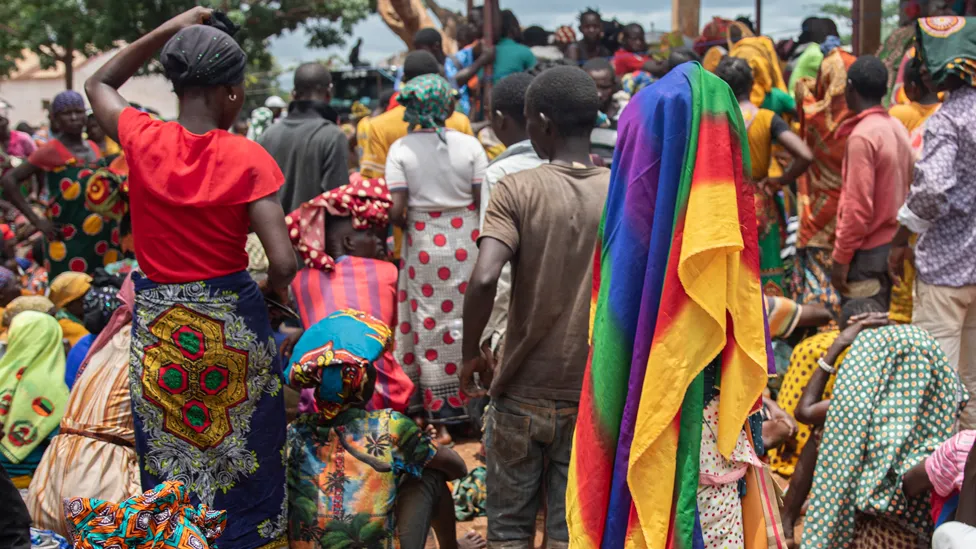More than 70 children are missing following recent jihadist attacks in Mozambique’s northern Cabo Delgado province, the authorities say.
They became separated from their families as thousands fled to a neighbouring province in recent weeks.
There are fears that some of them may have been kidnapped by the fighters linked to the Islamic State (IS) group.
Regional troops have been helping the military tackle an insurgency involving Islamist militants that began in 2017.
But the violence has spiked recently and the medical charity Médecins Sans Frontières (MSF) says 80,000 people have been displaced since January.
The children were among those who fled over the last few weeks from Cabo Delgado’s Chiùre district to Nampula province.
Chiùre, in the south of Cabo Delgado, has been a relatively safe haven for those displaced over the last few years – with the violence mainly being reported in the north of the province.
Last week, President Filipe Nyusi said the jihadists had deliberately targeted Chiùre to abduct children.
There is concern they may have been placed in training camps by the militants, the private newspaper Expresso da Tarde reports.
It is not clear how many civilians have died in the recent violence in Chiùre – where the army says calm has now been restored.
Officials say the children were lost in the panic as people fled – some have been since been found, but 72 are still unaccounted for.
More than 60% of those displaced by the new wave of jihadist attacks are children and 129 schools have been closed, according to a UN report.
It is the highest number of children to be uprooted in such a short period, Save the Children says.
“There are repeated reports of beheadings and abductions, including multiple child victims. The conflict has already left 540,000 people displaced with more than a half of them children,” the charity said.
The insurgency in the gas-rich province of Cabo Delgado, launched by the IS-linked local al-Shabab militia, is now in its seventh year.
High levels of poverty and disputes over access to land and jobs have contributed to local grievances.
